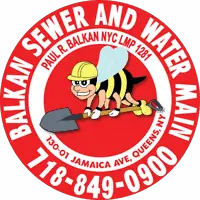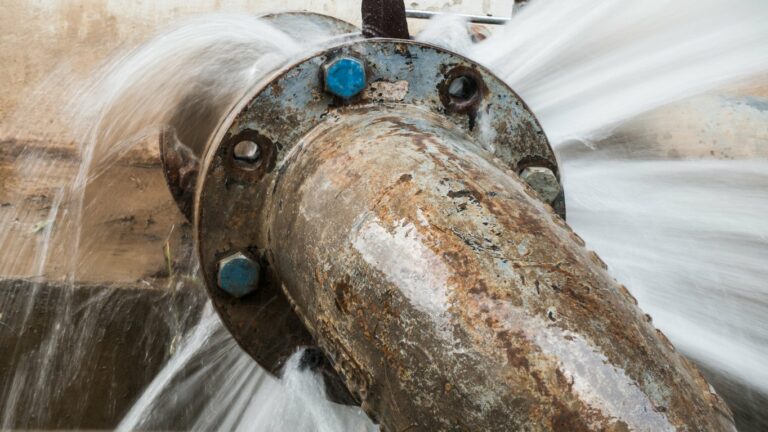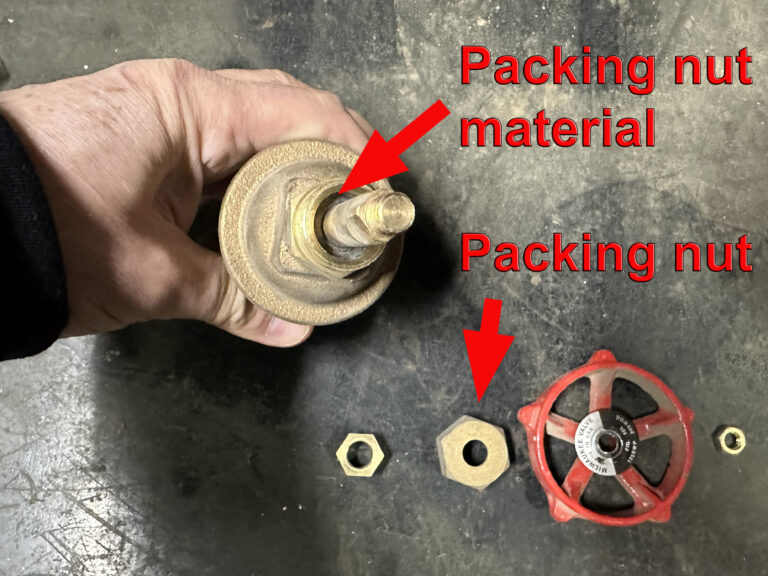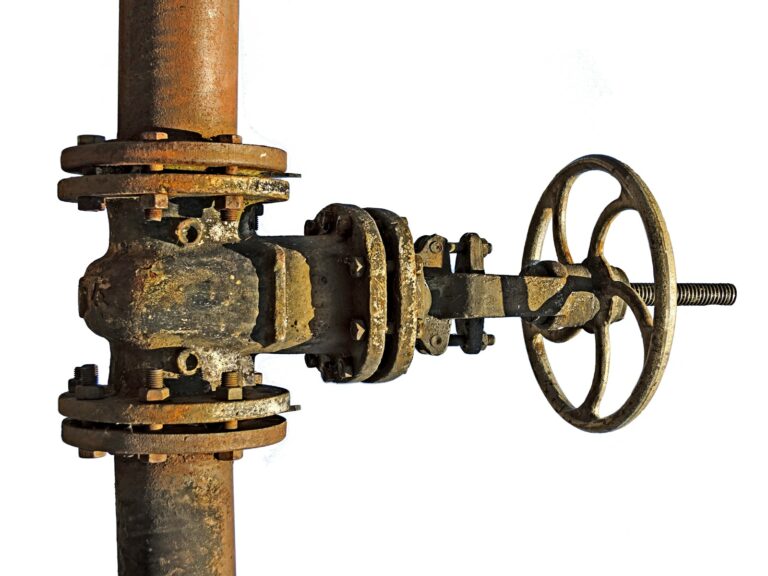A main water line for a building in NYC typically lasts for around 50 years, but many last quite a bit longer. When a repair is considered on a leaking or defective main water line there are important issues to consider and a high degree of expertise required. Issues such as the age of the existing line, the material the main is made out of, and the cost factors should be the main concerns. But other factors also come into play such as the need for specialty fittings or materials, or the past work order history of the service line.
The age of the existing main water line
If the water line is close to 50 years old or older a repair is not a wise decision. The useful life of the service is up. Repairing a service whose useful life is up will typically result in additional work being required again in the near future. Actually once old plumbing is tampered with or moved in any way it greatly increases the chance of it breaking again.
In some cases a property may be for sale or ready for closing on a sale. Doing a repair only to leave a new owner with another costly plumbing job in the future is not the best way to go, there are better options. In the case where a property is changing hands it may be a good idea for both the seller and the buyer to negotiate a settlement and for each party to absorb part of the cost of a complete replacement – which would result in the proper plumbing job.
Even when a water line repair is legal, such as on a copper main, the copper becomes brittle over time. When an old copper tubing is flared in order to make the connection, frequently the ends will split or hair line cracks will form leading to future problems.
What material is the existing main made out of ?
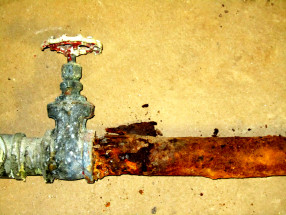
Two materials have never been a good idea to repair – lead and galvanized pipe. Recently the NYC DEP formalized a policy of making repairs on lead or galvanized illegal and strictly against code. Galvanized pipe interacts with water and corrodes from the inside out. This corrosion will eventually close off the inside diameter and make it likely to completely rupture without notice. Lead becomes brittle over time, and once moved in any way forms hair line cracks which will typically rupture within a year or so.
In short lead and galvanized pipe should never be considered for a repair or partial replacement. Even if legal in jurisdictions outside of NYC it is poor plumbing practice and sure to break again in the near future.
The cost of a repair vs. a complete replacement
Water main replacement cost may be the biggest deciding factor for a property owner. An important thing to consider is that many of the costs in performing either a main water line repair or a main water line replacement are set. Permit fees, restoration costs, much of the labor, tools and equipment are all required regardless of the scope of work. Material costs comprise only around 20% or so of the cost of a typical job. Therefore there is not a tremendous difference in the cost of a repair and a complete replacement. A general rule of thumb is that if a repair costs 50% or more of the cost of a replacement to just do the replacement.
A property owner may feel that the plumber is just pushing to do the bigger job – but in fact it is generally just good plumbing practice to replace a defective service line.
Other factors to consider
Even some materials that are legal to repair require special fittings or material. One example would be be corporation pipe which is a thick walled cast iron pipe. While corporation pipe is no longer legal as material, it is legal to perform a repair on it. When work is performed on a corporation pipe specialty fittings are needed because the diameter of corporation pipe and ductile iron pipe differ. Also the properties of the pipe differ. These are important facts to know, otherwise a repair could have disastrous results. Using an improper fitting or connecting improperly could cause a plumbing work to literally blow apart.
Another issue that sometimes comes into play is connecting unlike metals together. Different metals have different electrical conductivity properties. Connecting some unlike materials together will cause electrolysis – resulting in the pipes to rot away. This would occur if for instance brass piping was connected to galvanized piping. Read more about water line electrolysis.
In some cases trying to perform a repair will force a sensitive or valuable area to be disturbed. On the contrary a complete water line replacement is usually done by a series of holes with tunnels in between. Because the exact point of the leak does not have to be uncovered, the location of the exact various holes is flexible. Therefore in some cases a replacement may cause less disruption than a repair.
